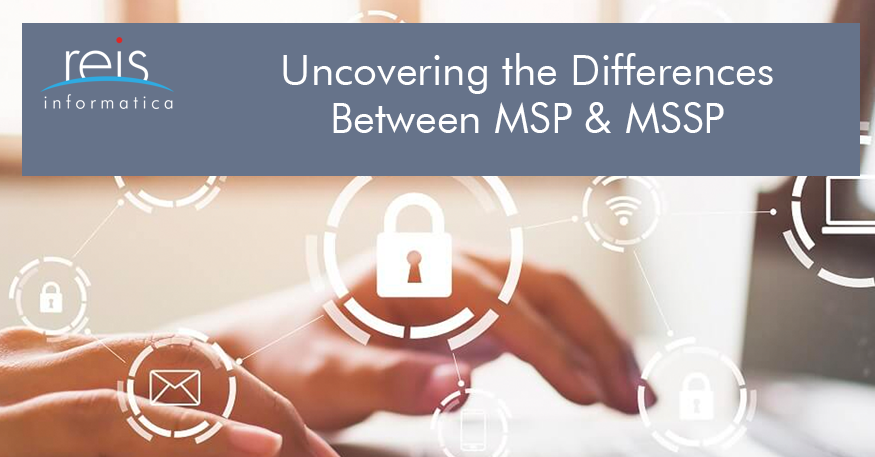Making a mistake about who handles your IT systems can be extremely costly and can put the security of your company at risk.
Organizations of all sizes don’t have it easy when it comes to protecting their network and data. Not only do they have to ensure that their business functions well, but also that their customer’s data, as well as their own, are secure against sophisticated cyberattacks.
Being informed of the options available to them, business owners are better equipped to keep the future of their company secure. In this post, we will uncover what exactly MSP and MSSPs are, their fundamental differences, and which would be best for keeping your company secure.

What is an MSP?
The acronym MSP stands for “managed service provider.” These service providers are IT companies that remotely manage another organization’s IT infrastructure and network on a proactive basis or under a subscription model.
Some MSPs may specialize in particular segments of IT like data storage. Others can focus on specific markets like healthcare and manufacturing. These providers can deliver a vast array of services like overseeing all IT administration work, maintenance, help desk support, application updates, and migrating content to the cloud.
But, as the finesse of cyberattacks becomes unrelenting, companies are focusing more on solidifying their security. As such, MSSPs have arisen.
What is an MSSP?
Because the terms “MSP” and “MSSP” are similar, it can be confusing to differentiate between them. The term MSSP stands for “managed security service provider,” and as the name insinuates, these IT companies are experts at managing an organizations’ security.
The main focus for these companies is to assess security risks, provide remedies and solutions to tackle potential cyber-attacks. MSSPs also help implement new, complex security approaches to ensure that both employees and data are protected.
The services they provide help protect organizations from data loss and downtime caused by insider attacks, phishing, malware, and other cyber threats, ensuring that only authorized persons can access data.
Because MSSPs are highly specialized, they can provide a higher level of security and help organizations implement complex security approaches to ensure appropriate practices.
Distinction Between MSPs and MSSPs
Both service providers help with the IT needs of your company, but the primary focus of an MSP is network administration while MSSP focuses on security. From a more practical standpoint, MSP offers services like bug fixes and threat detection, but MSSP goes a step beyond and helps with incident detection, response, and scans for further vulnerabilities and threats.
Some of the specific differences between MSPs and MSSPs are as follows:
Function:
MSP – handles all IT aspects of a company, from bug fixes to helpdesk support.
MSSP – a variety of security oversight and monitoring services, protection from viruses, website risk assessments and more.
Role:
MSP – defined as a collection of technology services for organizations on a preemptive basis.
MSSP – provide total security solutions to assess and manage an organization’s security needs.
Primary Focus:
MSP – set their focus on IT, from managing infrastructure and systems to helping businesses stay efficient while reaching their goals.
MSSP – focused mainly on providing a wide range of security monitoring, particularly those who require around-the-clock monitoring for security threats.
Which service is better for your business?
Now that you understand the difference between managed service providers and managed security service providers, you’re probably wondering what would suit your business better.
An outsourced IT service provider can help you focus on scaling your business and customer priorities by supporting you with expertise that wouldn’t otherwise be possible.
With the emergence of MSSPs reflecting the ever-prevalent need to tackle complex security challenges, some MSPs may not be able to be up to the challenge. When thinking of your cybersecurity posture, assess the types of services you need from an IT company and what would align with your requirements.
